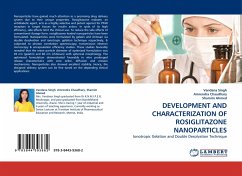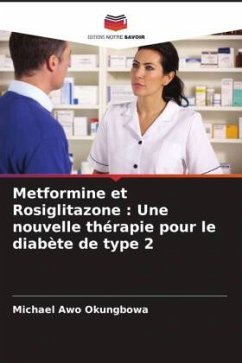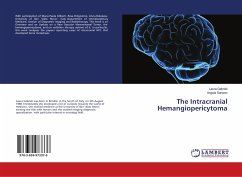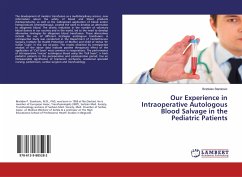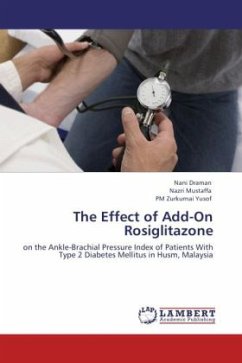
The Effect of Add-On Rosiglitazone
on the Ankle-Brachial Pressure Index of Patients With Type 2 Diabetes Mellitus in Husm, Malaysia
Versandkostenfrei!
Versandfertig in 6-10 Tagen
32,99 €
inkl. MwSt.

PAYBACK Punkte
16 °P sammeln!
Rosiglitazone, an oral hypoglycaemic agent of the thiazolidinedione group is used for Type 2 Diabetes treatment. Research has shown that this medication, being a peroxisome proliferator activator receptor-gamma agonist has effects beyond glycaemic control alone. Apart from improving insulin resistance, the non-hypoglycaemic effects of rosiglitazone include reduction of inflammatory markers, improvement of endothelial function, improvement in fibrinolytic activity as well as changes in cholesterol profile. This study aims to assess changes in surrogate markers of atherosclerotic burden via ankl...
Rosiglitazone, an oral hypoglycaemic agent of the thiazolidinedione group is used for Type 2 Diabetes treatment. Research has shown that this medication, being a peroxisome proliferator activator receptor-gamma agonist has effects beyond glycaemic control alone. Apart from improving insulin resistance, the non-hypoglycaemic effects of rosiglitazone include reduction of inflammatory markers, improvement of endothelial function, improvement in fibrinolytic activity as well as changes in cholesterol profile. This study aims to assess changes in surrogate markers of atherosclerotic burden via ankle-brachial pressure index measurements, the number of patients who have significant peripheral artery disease in the study, changes in the diabetic prothrombotic state via serum plasminogen activity, changes in glycaemic control via HbA1c and changes in cholesterol profile by measuring total-, high density lipoprotein- and low density lipoprotein-cholesterol after rosiglitazone is added to apre-existing Type 2 Diabetes treatment regime.




